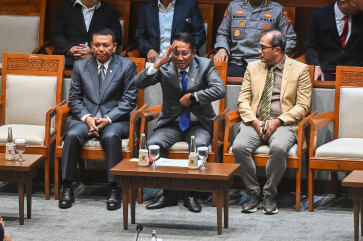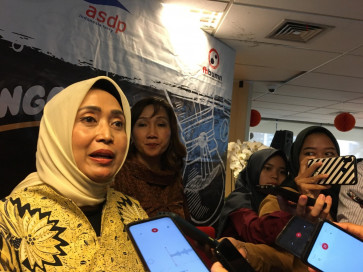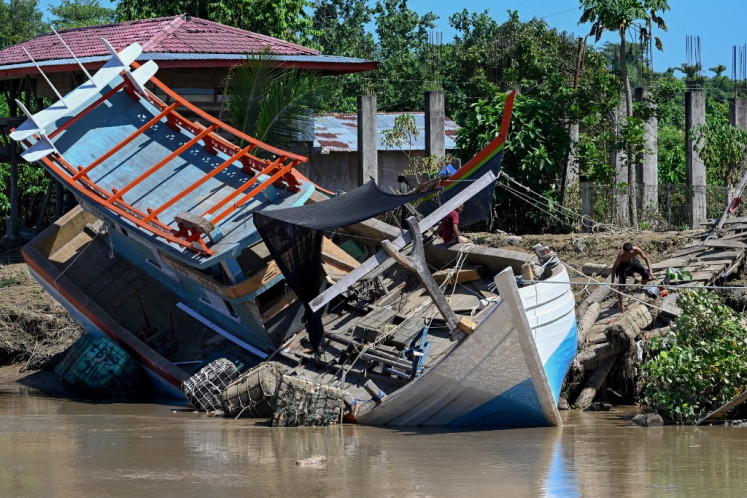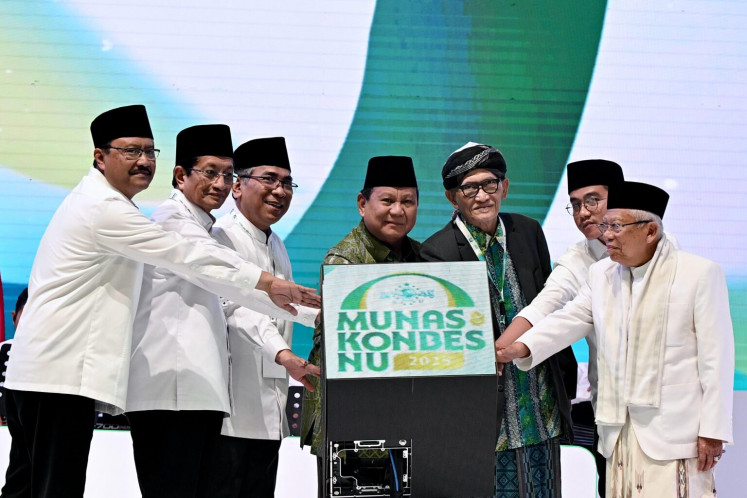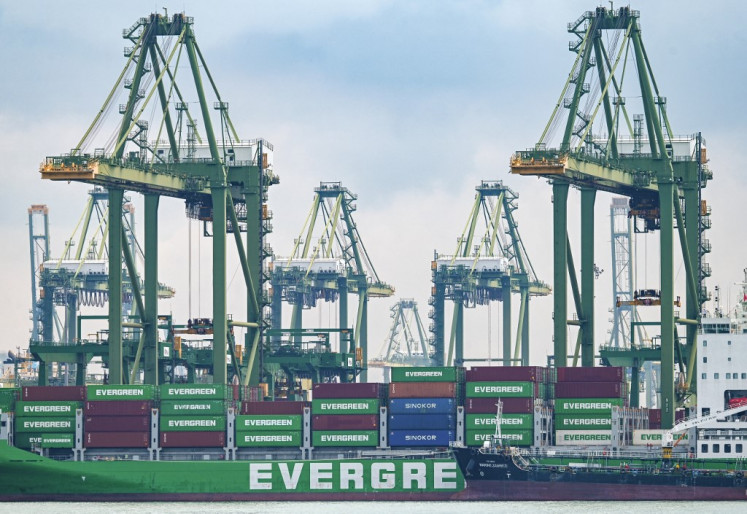Popular Reads
Top Results
Can't find what you're looking for?
View all search resultsPopular Reads
Top Results
Can't find what you're looking for?
View all search resultsLack of cold storage hampers fish processing industry
Fishing industry players have urged the government to address supply chain issues in the distribution of fresh fish to the local fish processing industry
Change text size
Gift Premium Articles
to Anyone
F
ishing industry players have urged the government to address supply chain issues in the distribution of fresh fish to the local fish processing industry.
Fish Cannery Association (Apiki) chairman Ady Surya said that the organization, an association of 41 processing companies, saw a drop in exports of at least 50 percent this year due to an insufficient supply of fresh fish.
'Fish stocks are now abundant [after the government took drastic action to combat illegal fishing] but they are not fresh so we cannot process them,' he said recently.
The Maritime Affairs and Fisheries Ministry has recently limited fish imports and banned fishermen from directly selling fish to traders while still at sea.
'The journey back to the port just to sell the fish raises logistics costs even higher and makes the fish less fresh,' Ady said, adding that if the government wanted to continue with its current program, it should provide better cold storage facilities near ports to keep fish fresh.
The ministry's fishing port director Syahril Fauzi has acknowledged the lack of cold storage facilities and said that the government was currently in the process of attracting more investors to open cold storage facilities and increase electricity supply in regions to increase ice production.
However, Ady said that poor coordination among state institutions was a common problem.
The association also suggested the government allow imports during bad fishing seasons as it needed at least 360,000 tons of tuna and 265,000 tons of sardines annually. It hopes to see its exports increase by 20 percent from 2014 rates.
Indonesian Employers Association (Apindo) fisheries division head Thomas Darmawan shared the same concerns as Ady.
'The state needs to eventually integrate markets and cold storage facilities near all ports. Now they are located far from one other. Consumers mostly live on Java Island and the ports are all across the archipelago with cold storage facilities located hours from there,' he said.
Today the country has 816 fishing ports, with only 22 under the ministry, according to Syahril. The ministry plans to upgrade the 22 ports next year and is calling for private parties and financial bodies, such as banks, to contribute to improving the other 794, including provision of cold storage and ice production facilities nearby.
The total capacity of cold storage facilities that were available to fisheries in 2014 was 7.2 million tons, insufficient for the nation's 14 million tons of fish annually, based on Indonesia Cold Storage Association (ARPI) data.
The ministry allocated Rp 235 billion (US$17.1 million) for the opening of 58 cold storages and 38 ice factories this year. In the future, it also plans to allow local cold storage facilities to be 100 percent foreign owned. Currently, foreign investors can only partially own the facilities.
It also plans to collaborate with Indonesia Fisheries Public Company (Perindo) to revamp the 110-hectare Muara Baru fish market in North Jakarta using state budget funds in 2016.
'We want to make it modern and convenient for people to buy fish there, just like Sydney Fish Market,' Syahril said.
According to Perindo president director Agus Suherman, Muara Baru is 110 hectares in size, 40 ha of which is the docking area for ships and the other 70 ha are rented to businesses.
By next year, the firm aims to have increased its cold storage capacity, from 600 tons to 5,000 tons, open a warehouse for equipment reparation and have a sea water reverse osmosis unit that will be able to supply 1,500 cubic meters of clean water daily. (rbk)
---------------------
To receive comprehensive and earlier access to The Jakarta Post print edition, please subscribe to our epaper through iOS' iTunes, Android's Google Play, Blackberry World or Microsoft's Windows Store. Subscription includes free daily editions of The Nation, The Star Malaysia, the Philippine Daily Inquirer and Asia News.
For print subscription, please contact our call center at (+6221) 5360014 or subscription@thejakartapost.com



